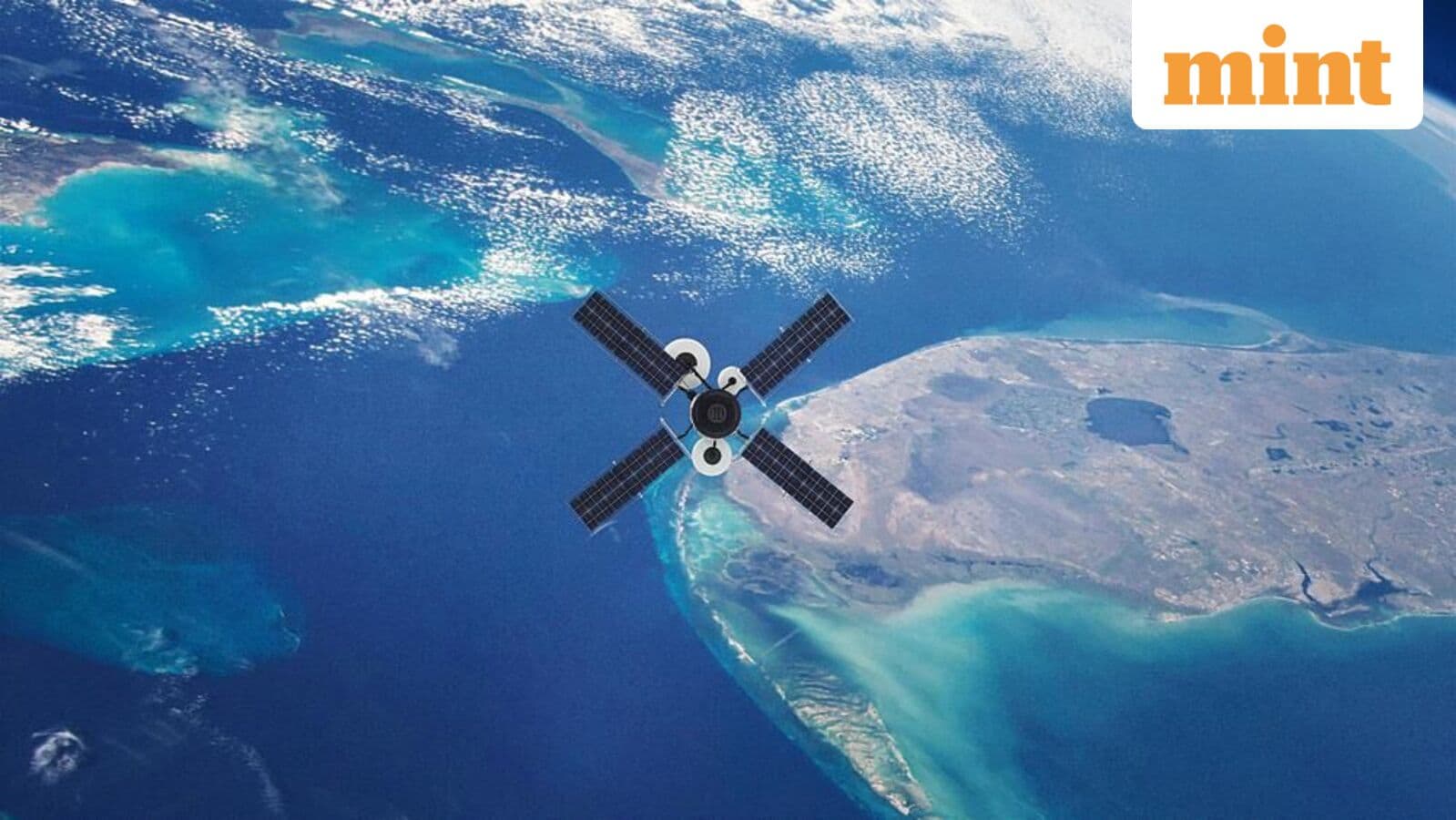The company applied for a virtual network operator licence to provide global mobile personal communication by satellite service and has “received the letter of intent”, one of the persons cited above said. Once the licence is granted, it will give Nelco the option to resell satellite internet services not just in retail markets, but also for newer use cases like portable or on-the-move connectivity using third-party satellite networks, the person said.
The initial nod opens the door for Nelco to enter the satellite broadband services market without owning satellites and its infrastructure, saving on capital expenditure and boosting revenue possibilities. It positions the company to capitalize on a burgeoning sector, as KPMG estimates India’s satellite communications market will reach $20 billion by 2028 from about $2.3 billion a year now.
On 11 August, Nelco signed an agreement with Bharti Enterprises-backed Eutelsat OneWeb to deliver low-earth orbit (LEO) satellite connectivity on land, at sea, and in the air across India, once the services start commercially after the government’s spectrum allotment. The government is finalizing the contours of allocating satellite spectrum to the operators and the related fee. So far, OneWeb, Starlink and Jio Satellite have secured the licences.
After getting the letter of intent, Nelco can begin fulfilling the necessary conditions before receiving the final permit.
The Tata Group company already offers limited satellite communication services, such as bank ATM connectivity and in-flight communication services, by leasing connectivity from satellites operated by the Indian Space Research Organisation (ISRO) and foreign operators. However, this approach is not suitable for large-scale use.
Nelco declined to comment on specific licence applications or their status or purpose.
“Considering that the licensing framework in the country keeps evolving, the company continuously evaluates various licenses which may become an enabler for expanding its business in the future,” Ritesh Kamdar, company secretary & head, legal at Nelco, said in response to Mint’s queries. “As such, applying for generic licenses is a standard procedural enablement to ensure the business remains agile at all times.”
The licence would also enable the company to offer internet connectivity by satellite operators directly to smartphones if the government allows direct-to-mobile service in the future, the second person quoted earlier said–both spoke on the condition of anonymity as details are not public yet.
Strategy shift
The resale model, instead of partnering to launch satellites and owning such infrastructure, marks a shift in strategy from 2022, when Nelco had applied for the Global Mobile Personal Communication by Satellite (GMPCS) licence in November 2022 to provide such services in collaboration with Canada-based satellite operator Telesat.
Nelco had inked a cooperation agreement with Telesat in 2020. In 2022, both companies even conducted their first in-orbit demonstration of high-speed broadband connectivity in India with Telesat’s Phase 1 LEO satellite.
That plan would have made the company a competitor to Starlink, OneWeb, Jio and others in the fray. However, in 2023, it withdrew its application submitted to the department of telecommunications (DoT). Industry executives attributed it to a delay in Telesat’s satellite constellation launch–it’s still under development.
During the company’s 82nd annual general meeting (AGM) in June, many shareholders asked the Nelco management whether the entry of foreign players like Starlink would affect its plan and whether it is looking for a possible tie-up with the Elon Musk-owned company.
In response, the management said it is in discussions with several LEO and GEO (geostationary earth orbit) satellite operators so that it can offer a multimodal service.
“For us, it is important to have the best possible satellites, be it LEO, GEO or MEO (medium earth orbit) and, therefore, we keep looking for all these satellite constellations to come and we partner with the satellite operator to offer our services,” said P.J. Nath, managing director and chief executive officer at Nelco.
“Therefore, we look at it as an opportunity for us rather than a threat for the market that we are operating in,” he said, adding that the company does not plan to launch its own satellites.
Nelco already holds the very small aperture terminal (VSAT), internet service provider and in-flight and maritime communication licences.
A VSAT licence allows companies like Nelco to provide satellite-based internet and data services to users in fixed locations, such as bank ATMs, remote offices, schools, or oil rigs. These setups use a small satellite dish to connect directly to a satellite in space.
While VSAT is useful in areas where mobile or fibre networks are not available, it typically offers limited bandwidth and higher latency compared to traditional internet, making it more suitable for basic data tasks for enterprise use rather than high-speed streaming or large-scale consumer use.
In FY25, Nelco’s revenue from operations fell 5% to ₹305 crore, while its net profit dropped 60% to ₹9.5 crore because of a decline in revenue and a one-time impact of the settlement of a long-pending tax dispute.
During the AGM, the company attributed the revenue drop to subdued market conditions and slower-than-expected growth in some key markets where it operates.
Nelco’s share in the current satcom services market is 35-40%. It competes with BSNL Ltd and Hughes Communications India, a joint venture between US-based Hughes Network Systems, LLC and Bharti Airtel. For the next two to three years, Nelco looks to spend about ₹40-45 crore in capex annually.

